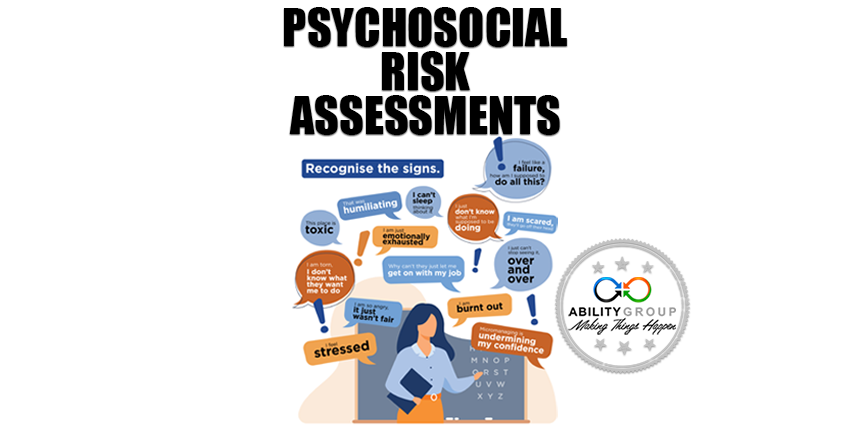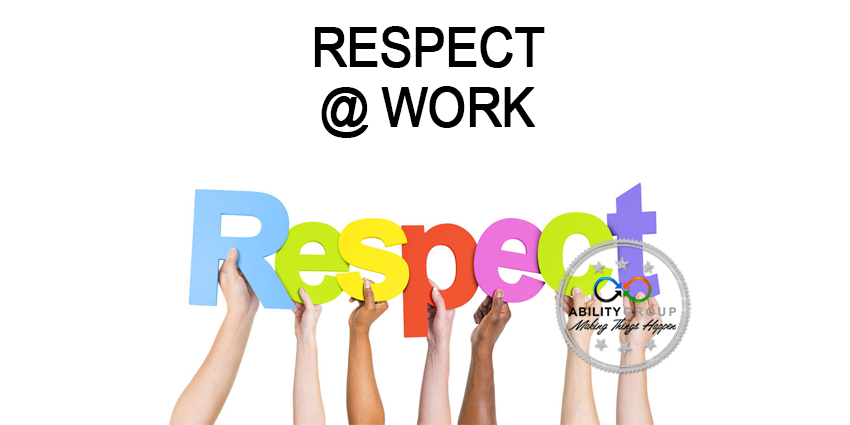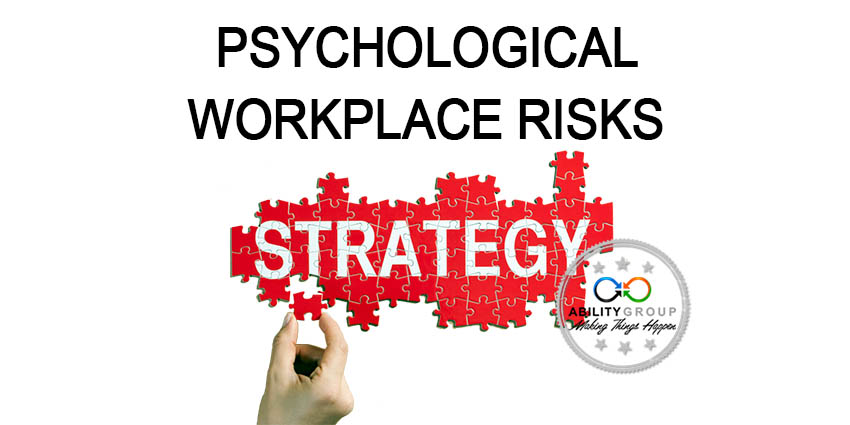
by ABILITY GROUP | Sep 8, 2025 | Managing Psychosocial Hazards, Work Health & Safety
In 2025, psychological safety is no longer a secondary concern, having become a core workplace obligation. With updated WHS legislation now requiring Australian employers to manage psychosocial hazards with the same rigour as physical risks, psychosocial risk assessments have become essential. At ABILITY GROUP, we help organisations move beyond compliance to build workplaces that are safe, supportive, and strategically resilient.
(more…)

by ABILITY GROUP | Aug 18, 2025 | Managing Psychosocial Hazards, Mental Health, Work Health & Safety
R U OK? Day is a National Day of Action dedicated to reminding Australians to check in with those around them and spark meaningful conversations about mental health and wellbeing. This year, it is held on Thursday 11th of September, and it serves as a powerful reminder that a simple question can make a life-changing difference.
(more…)

by Marc Ring | Nov 27, 2024 | Claims, Injury Prevention, Managing Psychosocial Hazards, Work Health & Safety, Workers Compensation, Workplace safety
The festive season is a time for celebration, but it’s also a time when workplace safety must remain a top priority. Work Christmas parties, while a great way to boost morale and show appreciation for employees, can present unique safety challenges. Each year we aim to provide recommendations and work party safety tips to help you make sure your people have fun and prevent the work Christmas party hangover.
(more…)

by Marc Ring | Aug 19, 2024 | Bullying, Health & Wellbeing, Injury Prevention, Managing Psychosocial Hazards, Work Health & Safety
Respect in the workplace is a cornerstone of healthy and productive work environments. In Australia, fostering respect at work has become a significant focus, driven by legislative changes and a growing awareness of the importance of a respectful workplace culture. So what is the legislative framework? How do you create a respectful workplace? What are the benefits of a respectful workplace?
(more…)

by Marc Ring | Jun 24, 2024 | Injury Prevention, Managing Psychosocial Hazards, Occupational Violence, Work Health & Safety
Psychological risks in the workplace, often referred to as psychosocial hazards, can significantly impact employees’ mental health and overall well-being. These risks stem from how work is organised, social dynamics, and the work environment itself. Identifying and addressing these risks is crucial for maintaining a healthy and productive workforce. The NSW Government has launched a new strategy to tackle psychological risks, aligned with the Code of Practice.
(more…)

by ABILITY GROUP | Feb 19, 2024 | Claim management, Injury Management, Injury Prevention, Managing Psychosocial Hazards
In recent years, Australia has witnessed a concerning surge in workers’ compensation claims related to mental health issues. This trend highlights rising mental health awareness and the need for strong workplace support systems. We delve into the factors contributing to this rise and explore potential solutions to address rising mental health claims.
Understanding the Rise
The increase in mental health-related workers’ compensation claims in Australia is multifaceted and can be attributed to several key factors:
- Heightened Awareness: There has been a significant increase in awareness and recognition of mental health issues in the workplace. Employees are now more inclined to report mental health-related issues, leading to a rise in compensation claims
- Work-Related Stress: Modern workplaces often operate in high-pressure environments, leading to increased levels of work-related stress. Factors such as long working hours, tight deadlines, and job insecurity contribute to heightened stress levels among employees
- Stigma Reduction: Efforts to reduce the stigma surrounding mental health have encouraged individuals to seek help when experiencing psychological distress. This has resulted in more employees coming forward to seek support and lodging compensation claims for work-related mental health issues
- Changing Work Dynamics: Remote work, accelerated by COVID-19, brings isolation, blurred boundaries, and mental health challenges.
- Inadequate Support: Many workplaces still lack resources to effectively address mental health needs. This deficiency can exacerbate existing problems and contribute to the rise in compensation claims
Addressing the Issue
To address rising mental health claims, implement strategies that prioritise employee well-being. Here are some potential solutions:
- Promoting Mental Health: Employers should prioritise awareness programs to build a supportive, inclusive workplace. This includes providing education on stress management, resilience building, and destigmatising conversations around mental health
- Work-Life Balance: Promote flexible schedules, regular breaks, and manageable workloads to reduce stress and support well-being
- These services should be easily accessible and confidential to encourage employees to seek help when needed
- Training Managers and Supervisors: Providing managers and supervisors training on recognising signs of mental distress, managing workloads effectively, and offering appropriate support can play a crucial role in preventing mental health issues and reducing workers’ compensation claims
- Creating a Psychologically Safe Environment: Organisations must prioritise creating a psychologically safe work environment where employees feel comfortable discussing mental health concerns without fear of judgment or reprisal. Open communication channels and supportive leadership are essential in fostering trust and well-being.
- Regular Monitoring and Evaluation: Employers should regularly monitor and evaluate the effectiveness of their mental health initiatives to identify areas for improvement and ensure that the needs of employees are being met adequately
The rise in mental health-related compensation claims in Australia underscores the urgent need for proactive workplace support. Prioritizing awareness, supportive policies, and open culture can reduce risks and build resilient, healthy workplaces. Collaboration among employers, policymakers, and stakeholders is key to ensuring workforce well-being
Mental health or psychological workers compensation claims are typically 7-8 times more than physical injuries. They are often complex & if not actively managed, they can have substantial impacts to your business.
Need help with a psychological or mental health related claim, contact our team to discuss.
For further information, please refer:
Source: SafeWork
Title: Psychological health and safety in the workplace report
Read Time: 10+ minutes






